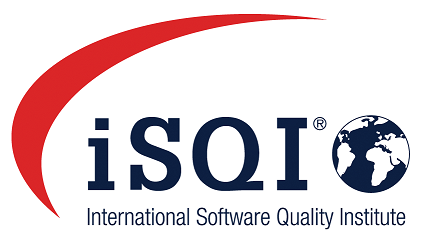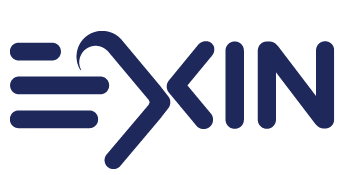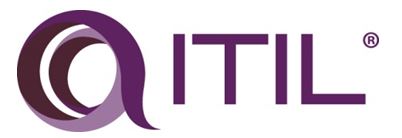iSQI's CAT Certified Agile Tester®
Agile is flexible and adaptive with frequent feedback loops, far different from the traditional regimented methodologies. Agile testing is different, so we made iSQI´s CAT Certified Agile Tester® different. It centers on the most important element in agile projects: YOU!
iSQI® Certified Agile Business Analysis
The iSQI® Certified Agile Business Analysis training and certification provides an excellent introduction to the day-to-day work of a business analyst in an agile development. It also introduces a selection of techniques that align well with the agile approach and philosophy.
iSQI® Certified Agile Essentials
The iSQI® Certified Agile Essentials training and certification program is aimed at anyone involved in an agile project and who wants to become familiar with working in an agile environment.
iSQI® Certified Agile Test Driven Development
Test Driven Development (TDD) is a software development process that relies on therepetition of a very short development cycle: first the developer writes an (initially failing) automated test case that defines a desired improvement or new function, then produces the minimum amount of code to pass that test, and finally refactors the new code to acceptable standards.
ISTQB Certified Tester - Advanced Level
The Advanced Level qualification is aimed at people who have achieved an advanced point in their careers in software testing. This includes people in roles such as testers, test analysts, test engineers, test consultants, test managers, user acceptance testers and software developers.
ISTQB Certified Tester - Agile EXT
Agile testing is a relatively new approach to software testing that follows the principles of agile software development as outlined in the Agile Manifesto.
ISTQB Certified Tester - Foundation Level
The Foundation Level qualification is aimed at professionals who need to demonstrate practical knowledge of the fundamental concepts of software testing. This includes people in roles such as test designers, test analysts, test engineers, test consultants, test managers, user acceptance testers and IT Professionals.
ISTQB Certified Tester - Model-based Tester
Model-based testing is an innovative test approach to improve effectivity and efficiency of the test process. A model-based tester on a project uses models to drive test analysis and design, and keeps advantage of the models for other testing activities such as test implementation and reporting.
ISTQB® Certified Model-Based Testing
The ISTQB® Certified Tester Foundation Level Model-Based Testing is a specialist module at the Foundation Level. Based on the ISTQB® Certified Tester – Foundation Level, the content of the Model-Based Tester syllabus provides additional skills for professional testers.
ISTQB® Certified Tester - Advanced Level, Technical Test Analyst
ISTQB® Certified Tester - Advanced Level, Test Analyst
ISTQB® Certified Tester - Advanced Level, Test Manager
ISTQB® Certified Tester - Expert Level, Improving the Testing Process
ISTQB® Certified Tester - Foundation Level
The Foundation Level qualification is aimed at anyone involved in software testing. This includes people in roles such as testers, test analysts, test engineers, test consultants, test managers, user acceptance testers and software developers.
ISTQB® Certified Tester – Foundation Level Extension, Agile Tester
This extension is aimed at anyone involved in software testing, who is interested in acquiring the basics of working in an agile environment. This includes people in roles such as testers, test analysts, test engineers, test consultants, test managers, user acceptance testers and software developers.
IT Management Principles
A concise introduction to IT and Information Management, this programme provides greater insight into the various methods of information management.
ITIL Foundation
ITIL (Information Technology Infrastructure Library) is the most widely accepted approach to IT service management in the world. ITIL can help individuals and organizations use IT to realize business change, transformation and growth.
ITIL Intermediate
ITIL (Information Technology Infrastructure Library) is the most widely accepted approach to IT service management in the world. ITIL can help individuals and organizations use IT to realize business change, transformation and growth.
ITIL Practitioner
ITIL (Information Technology Infrastructure Library) is the most widely accepted approach to IT service management in the world. ITIL can help individuals and organizations use IT to realize business change, transformation and growth.
Lean IT Foundation
Lean IT Foundation helps IT organizations to ensure that they provide their customers with the best possible services. Through understanding customer value, the processes that deliver this value, the way to manage performance, the way to organize and the required attitude and behavior, IT organizations are helped to develop a continuous improvement mind-set.
Lean IT Kaizen
Lean IT helps IT organizations to ensure that they provide their customers with the best possible services. Through understanding customer value, the processes that deliver this value, the way to manage performance, the way to organize and the required attitude and behavior, IT organizations are helped to develop a continuous improvement mind-set.
Lean IT Leadership
Lean IT helps IT organizations to ensure that they provide their customers with the best possible services. Through understanding customer value, the processes that deliver this value, the way to manage performance, the way to organize and the required attitude and behavior, IT organizations are helped to develop a continuous improvement mind-set.



